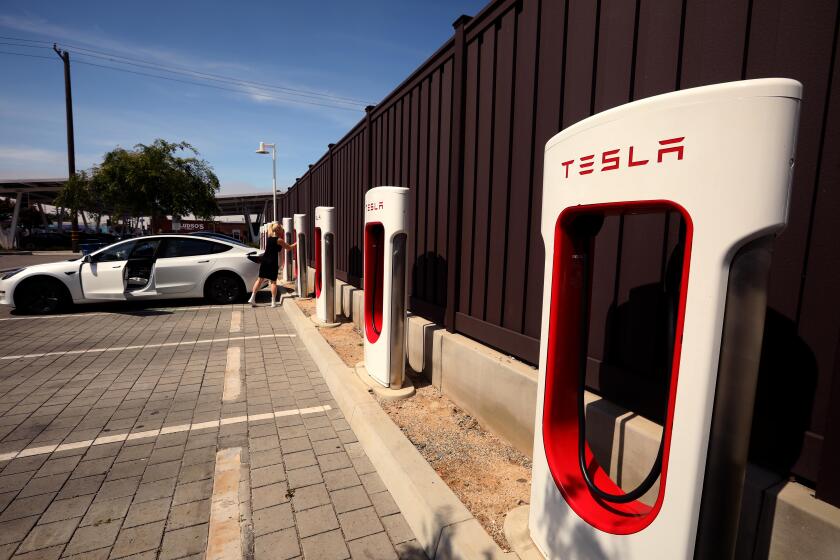Judge Orders Ford to Replace Ignition Unit
Ford Motor Co. must replace defective ignition devices on an estimated 2 million California vehicles prone to stalling, a judge ruled Friday.
The order, which would cost Ford an estimated $300 million, came months after Alameda County Superior Court Judge Michael E. Ballachey ordered the vehicles recalled as part of a statewide class-action suit that could develop into a national recall.
Ballachey, who ordered replacement of the devices based on advice from a court-appointed expert, found that Ford concealed the shabby parts from government inspectors.
Even with the fix, which may not happen for more than a year as the legal wrangling continues, the cars still may stall in traffic. But plaintiffs’ attorneys and consumer groups said it was the best of three recall options.
“It’s problematic, but there is less likelihood that they will stall with the new modules,” said Jeff Fazio, the lead attorney in the case against Ford. Fazio called Friday’s ruling a victory for Ford owners in California.
The Detroit auto maker denies that the devices are defective and stall, but has settled hundreds of wrongful death, injury and other suits in connection to allegations of Ford vehicles stalling.
The Alameda County Superior Court suit challenged Ford’s placement of the thick film ignition module, which regulates electric current to the spark plugs. In 300 models sold between 1983 and 1995, the module was mounted on the distributor near the engine block, where it was exposed to high temperatures.
Ballachey, the nation’s only judge to order a vehicle recall, found last year that Ford was warned by an engineer that high temperatures would cause the device to fail and stall the engine.
Internal documents show that Ford confirmed the problem in internal studies and could have moved the module to a cooler spot for an extra $4 per vehicle.
Under the recall proposal, Ford would replace the older modules with modern, heat-resistant versions. But they still would be placed along the distributor and exposed to high temperatures, which could cause them to stall.
Nevertheless, Fazio and consumer groups agree with the method. A second option, mounting the ignition devices in a new location, could take years to engineer, whereas a new, modern ignition device could be mounted immediately.
A third option, for Ford to buy back affected vehicles, would not be fair to the poor because they would get only fair-market value and might not be able to afford a new car, analysts said.
Regardless, Ford said it will appeal the recall order, which affects all 1983 to 1995 Ford models in California. The auto maker said judges do not have the same power as does the National Highway Traffic Safety Administration to order a vehicle recall.
“We don’t think there’s anything that needs to be replaced. Our ignition system is as good as anybody’s,” Ford attorney Warren Platt said.



